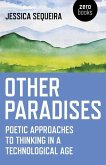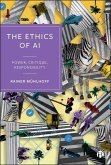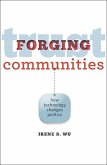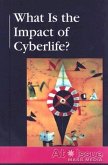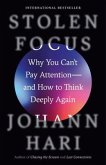May Friedman, Silvia SchultermandlTransnational Identity and Quick Media
Click and Kin
Transnational Identity and Quick Media
Herausgeber: Friedman, May; Schultermandl, Silvia
May Friedman, Silvia SchultermandlTransnational Identity and Quick Media
Click and Kin
Transnational Identity and Quick Media
Herausgeber: Friedman, May; Schultermandl, Silvia
- Broschiertes Buch
- Merkliste
- Auf die Merkliste
- Bewerten Bewerten
- Teilen
- Produkt teilen
- Produkterinnerung
- Produkterinnerung
The essays in Click and Kin span the globe, examining transnational connections that touch in the United States, Canada, Mexico, India, Pakistan, and elsewhere.
Andere Kunden interessierten sich auch für
![The Technological Society The Technological Society]() Jacques EllulThe Technological Society12,99 €
Jacques EllulThe Technological Society12,99 €![Other Paradises Other Paradises]() Jessica SequeiraOther Paradises13,99 €
Jessica SequeiraOther Paradises13,99 €![Popular Modernity in America Popular Modernity in America]() Michael Thomas CarrollPopular Modernity in America33,99 €
Michael Thomas CarrollPopular Modernity in America33,99 €![The Ethics of AI The Ethics of AI]() Rainer MühlhoffThe Ethics of AI38,99 €
Rainer MühlhoffThe Ethics of AI38,99 €![Forging Trust Communities Forging Trust Communities]() Irene S WuForging Trust Communities24,99 €
Irene S WuForging Trust Communities24,99 €![What Is the Impact of Cyberlife? What Is the Impact of Cyberlife?]() What Is the Impact of Cyberlife?27,99 €
What Is the Impact of Cyberlife?27,99 €![Stolen Focus Stolen Focus]() Johann HariStolen Focus15,99 €
Johann HariStolen Focus15,99 €-
-
-
The essays in Click and Kin span the globe, examining transnational connections that touch in the United States, Canada, Mexico, India, Pakistan, and elsewhere.
Produktdetails
- Produktdetails
- Verlag: University of Toronto Press
- Erscheinungstermin: 21. April 2016
- Englisch
- Abmessung: 226mm x 150mm x 15mm
- Gewicht: 431g
- ISBN-13: 9781487519964
- ISBN-10: 1487519966
- Artikelnr.: 44004095
- Herstellerkennzeichnung
- Libri GmbH
- Europaallee 1
- 36244 Bad Hersfeld
- gpsr@libri.de
- Verlag: University of Toronto Press
- Erscheinungstermin: 21. April 2016
- Englisch
- Abmessung: 226mm x 150mm x 15mm
- Gewicht: 431g
- ISBN-13: 9781487519964
- ISBN-10: 1487519966
- Artikelnr.: 44004095
- Herstellerkennzeichnung
- Libri GmbH
- Europaallee 1
- 36244 Bad Hersfeld
- gpsr@libri.de
May Friedman is an associate professor in the School of Social Work at Ryerson University and the author of the award-winning Mommyblogs and the Changing Face of Motherhood. Silvia Schultermandl is an assistant professor in the Department of American Studies at the University of Graz in Austria.
Introduction (May Friedman and Silvia Schultermandl)
Between the Individual and an Imagined Community
1. “I Talk to My Family in Mexico but I Don’t Know Them”: Undocumented
Young Adults Negotiating Belonging in the United States through
Conversations with Mexico (Laura E. Enriquez)
2. “Learning and Practicing Democracy”: Digital Diasporas and Negotiating a
Transnational Civil Society (M. Tina Zarpour)
3. Negotiating Everyday Conversation of South Asian Transnational
Identities in Social Media (Aparajita De and Shekh Moinuddin)
Shaping Identities
4. Queering “Web” Families: Cultural Kinship through Lesbian Web Series
(Julia Obermayr)
5. Literary Letters and IMs: American Epistolary Novels as Regulatory
Fictions (Silvia Schultermandl)
CyberAlternatives to Lived Identities
6. Digital Diasporic Experiences in Digital Queer Spaces (Ahmet Atay)
7. Claiming Ourselves as “Korean”: Accounting for Adoptees within the
Korean Diaspora in the United States (Kimberly McKee)
Disembodied Connections
8. Shifting Terrain: Exploring the History of Communication Through the
Communication of My History (May Friedman)
9. Love knows no bound: (Re)defining Ambivalent Physical Boundary and
Kinship in the World of ICTs (Isabella Ng)
10. The Internet Is Not A River: Space, Movement, and Relationality In A
Wired World (Samuel Veissiere)
Between the Individual and an Imagined Community
1. “I Talk to My Family in Mexico but I Don’t Know Them”: Undocumented
Young Adults Negotiating Belonging in the United States through
Conversations with Mexico (Laura E. Enriquez)
2. “Learning and Practicing Democracy”: Digital Diasporas and Negotiating a
Transnational Civil Society (M. Tina Zarpour)
3. Negotiating Everyday Conversation of South Asian Transnational
Identities in Social Media (Aparajita De and Shekh Moinuddin)
Shaping Identities
4. Queering “Web” Families: Cultural Kinship through Lesbian Web Series
(Julia Obermayr)
5. Literary Letters and IMs: American Epistolary Novels as Regulatory
Fictions (Silvia Schultermandl)
CyberAlternatives to Lived Identities
6. Digital Diasporic Experiences in Digital Queer Spaces (Ahmet Atay)
7. Claiming Ourselves as “Korean”: Accounting for Adoptees within the
Korean Diaspora in the United States (Kimberly McKee)
Disembodied Connections
8. Shifting Terrain: Exploring the History of Communication Through the
Communication of My History (May Friedman)
9. Love knows no bound: (Re)defining Ambivalent Physical Boundary and
Kinship in the World of ICTs (Isabella Ng)
10. The Internet Is Not A River: Space, Movement, and Relationality In A
Wired World (Samuel Veissiere)
Introduction (May Friedman and Silvia Schultermandl)
Between the Individual and an Imagined Community
1. “I Talk to My Family in Mexico but I Don’t Know Them”: Undocumented
Young Adults Negotiating Belonging in the United States through
Conversations with Mexico (Laura E. Enriquez)
2. “Learning and Practicing Democracy”: Digital Diasporas and Negotiating a
Transnational Civil Society (M. Tina Zarpour)
3. Negotiating Everyday Conversation of South Asian Transnational
Identities in Social Media (Aparajita De and Shekh Moinuddin)
Shaping Identities
4. Queering “Web” Families: Cultural Kinship through Lesbian Web Series
(Julia Obermayr)
5. Literary Letters and IMs: American Epistolary Novels as Regulatory
Fictions (Silvia Schultermandl)
CyberAlternatives to Lived Identities
6. Digital Diasporic Experiences in Digital Queer Spaces (Ahmet Atay)
7. Claiming Ourselves as “Korean”: Accounting for Adoptees within the
Korean Diaspora in the United States (Kimberly McKee)
Disembodied Connections
8. Shifting Terrain: Exploring the History of Communication Through the
Communication of My History (May Friedman)
9. Love knows no bound: (Re)defining Ambivalent Physical Boundary and
Kinship in the World of ICTs (Isabella Ng)
10. The Internet Is Not A River: Space, Movement, and Relationality In A
Wired World (Samuel Veissiere)
Between the Individual and an Imagined Community
1. “I Talk to My Family in Mexico but I Don’t Know Them”: Undocumented
Young Adults Negotiating Belonging in the United States through
Conversations with Mexico (Laura E. Enriquez)
2. “Learning and Practicing Democracy”: Digital Diasporas and Negotiating a
Transnational Civil Society (M. Tina Zarpour)
3. Negotiating Everyday Conversation of South Asian Transnational
Identities in Social Media (Aparajita De and Shekh Moinuddin)
Shaping Identities
4. Queering “Web” Families: Cultural Kinship through Lesbian Web Series
(Julia Obermayr)
5. Literary Letters and IMs: American Epistolary Novels as Regulatory
Fictions (Silvia Schultermandl)
CyberAlternatives to Lived Identities
6. Digital Diasporic Experiences in Digital Queer Spaces (Ahmet Atay)
7. Claiming Ourselves as “Korean”: Accounting for Adoptees within the
Korean Diaspora in the United States (Kimberly McKee)
Disembodied Connections
8. Shifting Terrain: Exploring the History of Communication Through the
Communication of My History (May Friedman)
9. Love knows no bound: (Re)defining Ambivalent Physical Boundary and
Kinship in the World of ICTs (Isabella Ng)
10. The Internet Is Not A River: Space, Movement, and Relationality In A
Wired World (Samuel Veissiere)




